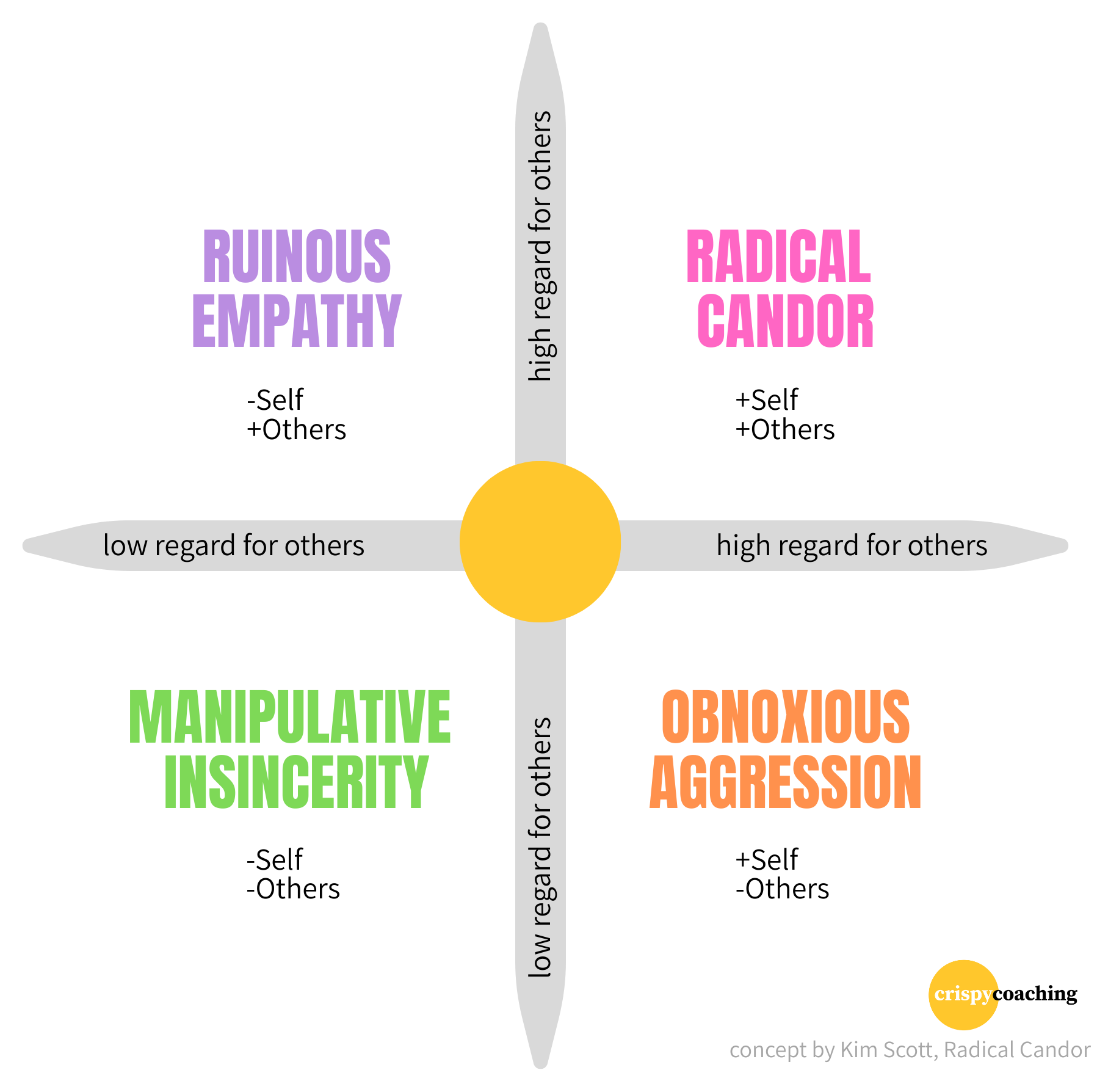Why Does Feedback Matter?
We often assume others see the world just as we do. This so-called egocentric bias can lead to misunderstandings and missed opportunities. In a fast-paced work environment, genuine feedback is essential for clarifying expectations, navigating differences, and building trust. Effective leaders encourage open dialogue, ensuring every voice is heard and every concern is addressed. Radical Candor is one way to establish an authentic feedback culture.
Kim Scott famously said, “Radical Candor … makes criticism kind and clear.”
- Kindness means caring about what’s best for the person in the long run, not just what’s comfortable in the moment.
- Clarity means being upfront about your perspective—while staying open to the possibility that you might be wrong.
At the heart of Radical Candor lie two core principles:
- Care Personally – Show genuine concern for individuals’ well-being and growth.
- Challenge Directly – Offer candid feedback without sugarcoating, to support real improvement.
How to Give Feedback? The Famous Feedback-Quadrant
Radical Candor is often illustrated with a simple two-axis model:
- Care Personally (low → high)
- Challenge Directly (low → high)
This creates four quadrants:
- Radical Candor: High care, high challenge—clear, constructive feedback that promotes trust and development
- Ruinous Empathy: High care, low challenge—overly protecting others by withholding honest feedback.
- Obnoxious Aggression: Low care, high challenge—blunt criticism that erodes relationships.
- Manipulative Insincerity: Low care, low challenge—avoidance, backchannel criticism, and unhelpful comments.
Strive for Radical Candor—be honest and direct, but never lose sight of the person behind the performance.

Crispy Advice: Intention Drives an Authentic Feedback Style
An essential requirement for authentic, effective feedback is your intention. If your primary goal is to help the other person grow, even tough conversations can become meaningful opportunities for development and deeper connection.
- Be Genuine: Don’t offer feedback just to “correct” someone; approach it with empathy and respect.
- Focus on Growth: Aim to guide and support, rather than judge or criticize.
- Stay Open: Listen actively, invite discussion, and show willingness to adjust your own perspective.
Before you enter a feedback situation make sure that your intention is to help the other person grow. By prioritizing the other person’s best interests and future success, you create a foundation of trust, enabling honest exchanges that strengthen both individual and team performance.
Ready to Learn More?
Explore our “Communication and Feedback” training to learn more about feedback mindset and to practice effective feedback tools (spoiler alert: feedback burger is not our favorite choice :))







